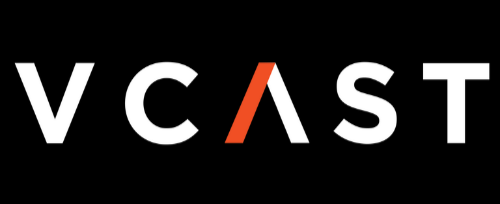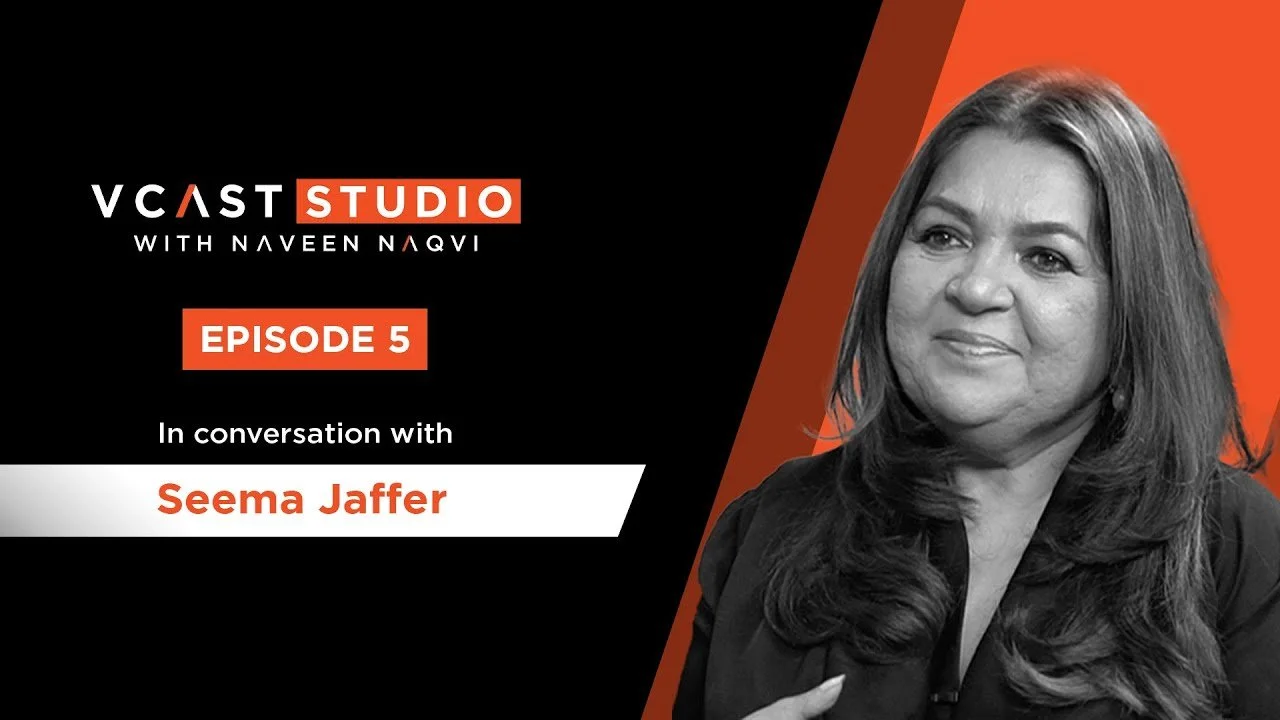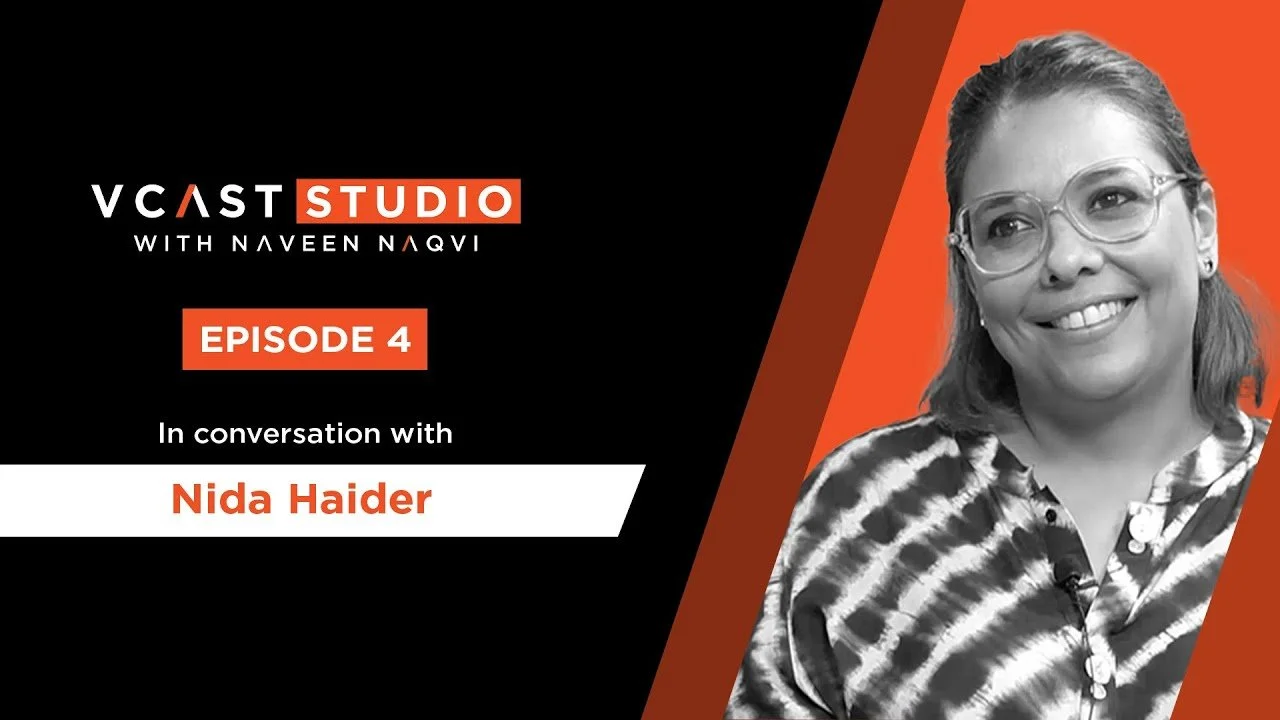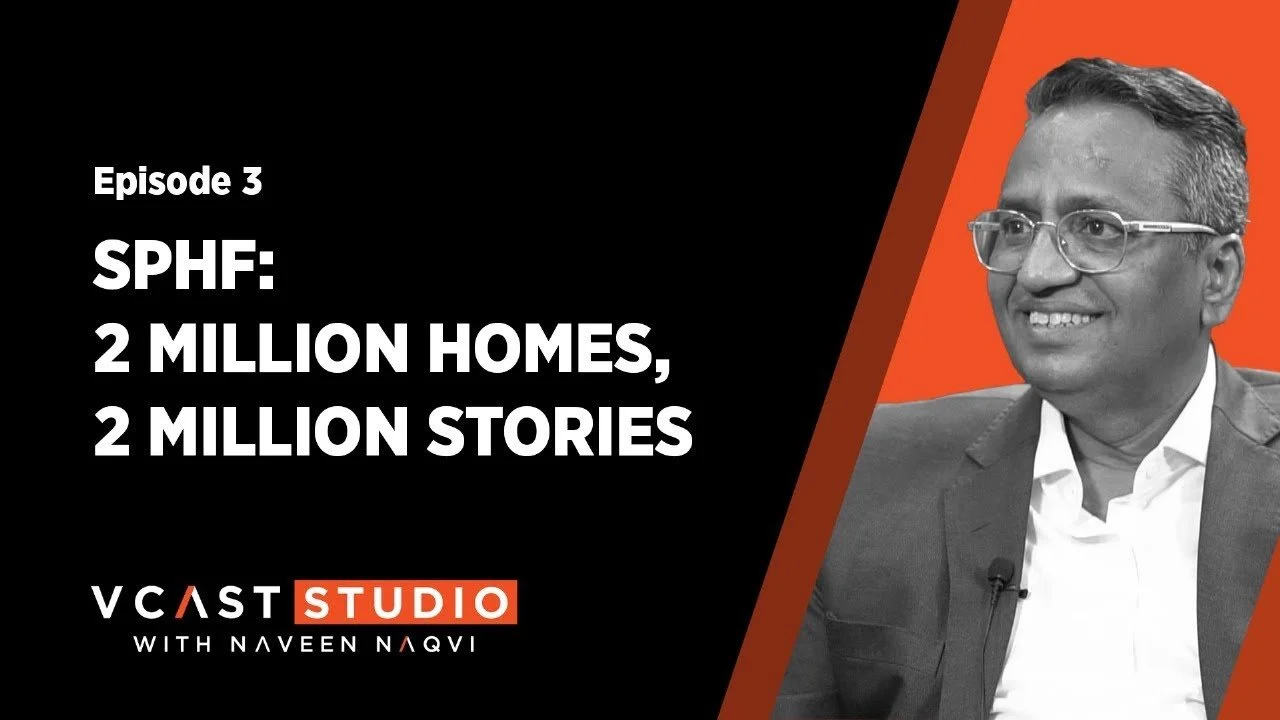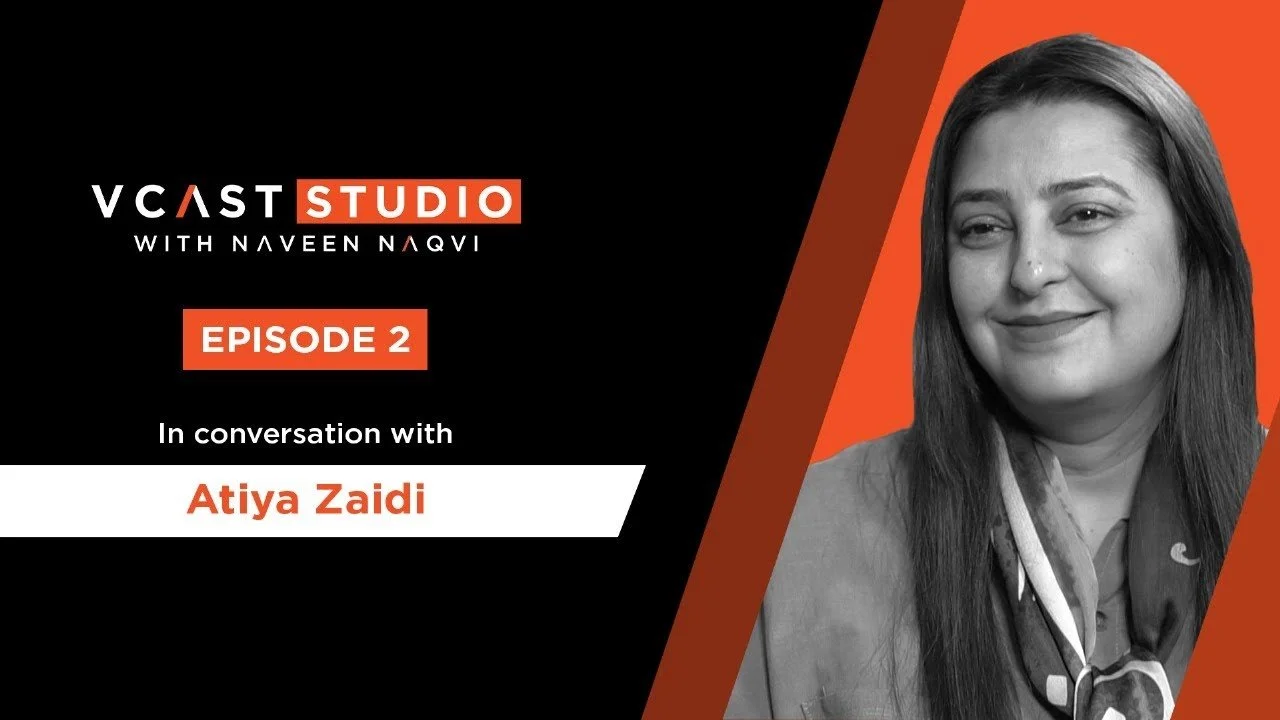VCast Studio - Episode 2 | Atiya Zaidi
“There is no shortage of brains in this business. It’s the lack of backbone that hampers good work from happening.” These powerful words from Atiya Zaidi, Pakistan's first woman to serve on the Cannes Lions award jury, highlight the fearless leadership that has defined her career. As CEO and Creative Director of BBDO Pakistan—the country’s most awarded-winning agency—Zaidi has become a symbol of innovation and determination.
With over 20 years of experience and accolades including the Rare Google Superwoman and Glass Lion awards, she remains a trailblazer for women in advertising. As co-founder of Shero Space, Zaidi continues to inspire and mentor the next generation of creatives.
Zaidi acknowledges that while traditional stories often follow familiar structures, originality lies in how stories are reshaped and personalized. “Nothing is new under the sun,” she says, “but how you change it and make it new is what matters.” In Pakistan’s advertising landscape, she notes that most creative work is original—crafted in response to specific briefs with unique concepts and targeted execution. While some multinational brands still rely on regional adaptations, the majority of Pakistani companies focus on homegrown ideas tailored to their audiences.
This creative freedom, Zaidi notes, is a strength unique to Pakistan—offering an open canvas for artists and storytellers to experiment and innovate. However, she also acknowledges a deeper challenge: the struggle to build a cohesive national brand identity. Pakistan’s creative industries, particularly the film sector, have faced significant setbacks over the years. She reflects on how the country once had a thriving platform for storytelling, but at some point—perhaps even before her time—it was abruptly taken away. Since then, the industry has struggled to regain its footing. This loss has created a void in how Pakistanis perceive their own narrative—and how that story is projected to the world.
“What does it mean to be a Pakistani? If I’m wearing the Pakistani badge on myself, what does it say about me? And right now it says all the wrong things. And for a very long time, it’s been saying the wrong thing.”
Yet in the face of these challenges, Zaidi highlights a vital and often overlooked truth: the resilience, hospitality, and generosity of ordinary Pakistanis. She notes that despite daily struggles with infrastructure, poverty, inflation, and the rising cost of living, people still get up, smile, and show up every day—often welcoming others into their homes and sharing what little they have. Those are the stories we need to project. She also reminds us that Pakistan’s story must begin with real substance:
“You need to do campaigns for the brand Pakistan. But what about the product Pakistan? The brand is only as good as what the product is.”
Coming to her day-to-day as both CEO and Creative Director, Zaidi discusses her dual responsibility of steering business strategy and driving creative excellence. She says this combination helps her approach challenges from fresh angles and connect business goals with creative vision—ensuring that both sides work toward the same result.
Driving this kind of progress, she believes, requires a new kind of leadership. It is not about always having the right answers, but about humility, empathy, and accountability. Leaders must take responsibility when things go wrong, share credit when they succeed, and develop a strong EQ. She adds that EQ won’t just help you lead better teams—it will grow your business by building goodwill with people.
For young professionals entering the creative industries, Zaidi offers both encouragement and realism. She emphasizes the importance of staying observant and curious, noting that inspiration often comes from ordinary surroundings and everyday moments.
Creativity, she says, is about continuous learning and unlearning—letting go of outdated habits to evolve. Hard work, patience, and perseverance remain essential, especially in environments where hesitation can curb ambition. And when creative work is done well, financial returns follow naturally.
Still, she points out that some parts of the industry remain cautious—reluctant to take creative risks or invest in new voices—which can slow progress. Yet Zaidi remains hopeful. She sees a new generation of creatives who bring not only talent but also resilience and a genuine desire to grow. Their journeys—from modest beginnings to leading major productions—show what is possible when people are given the space and support to thrive.
Zaidi is also vocal about the power of advertising to shape social behavior. She points to campaigns in Pakistan that challenge ingrained biases, such as commercials showing fathers mopping floors, which help shift perceptions about gender roles at home. She also draws attention to broader cultural issues—like how a majority of women earning medical degrees in Pakistan never practice—calling it a societal expectation problem that advertising can help address. She believes that when used with intention, advertising can do more than sell products—it can challenge stereotypes, reshape harmful norms, and inspire lasting social change.
Her words are a reminder that the most powerful stories made in and about Pakistan are those that spark both pride as well as progress.
Can you recall some advertisements that have shaped your beliefs and perspectives? Let us know in the comments.
This article was developed with the assistance of AI tools.
